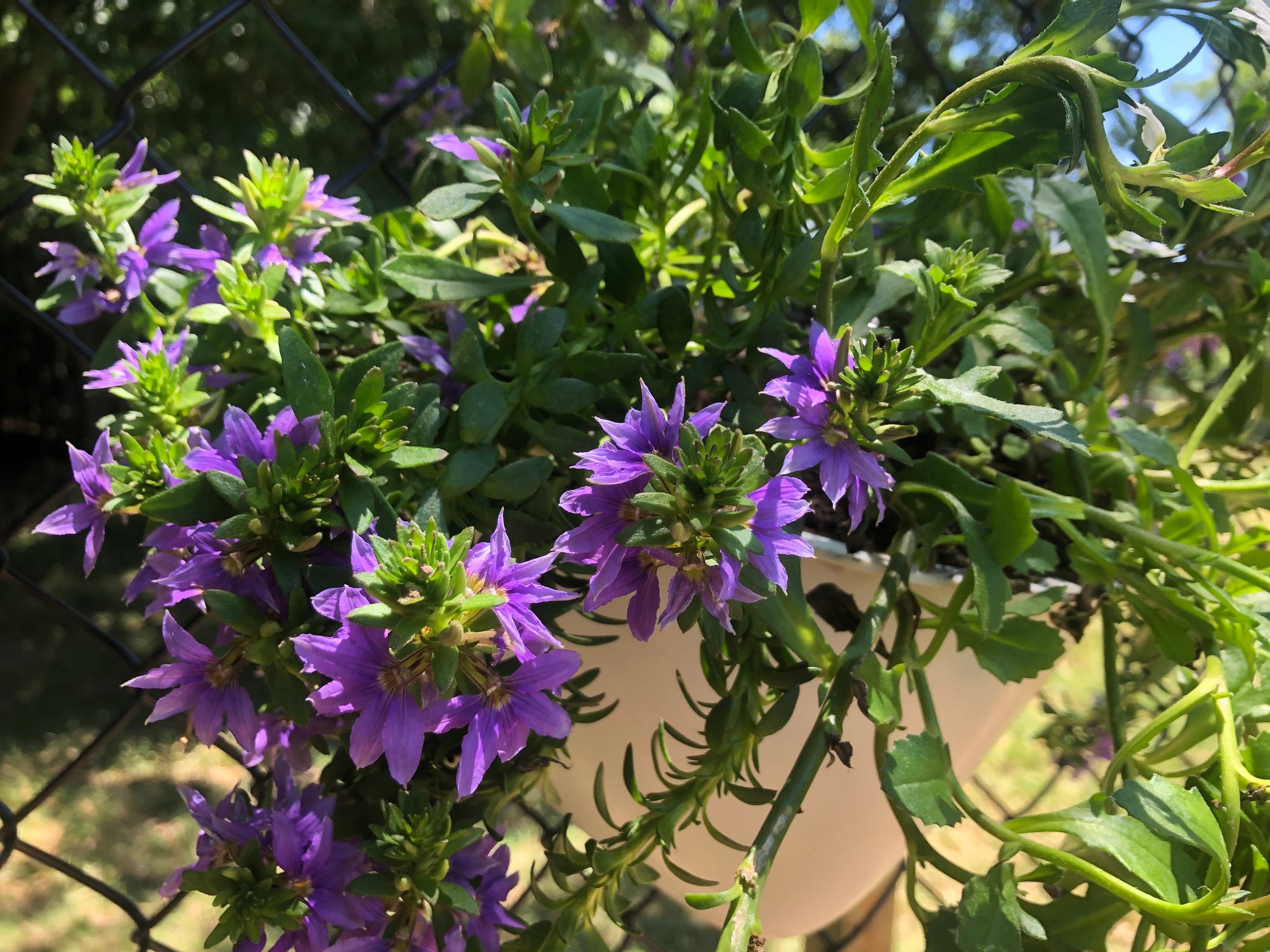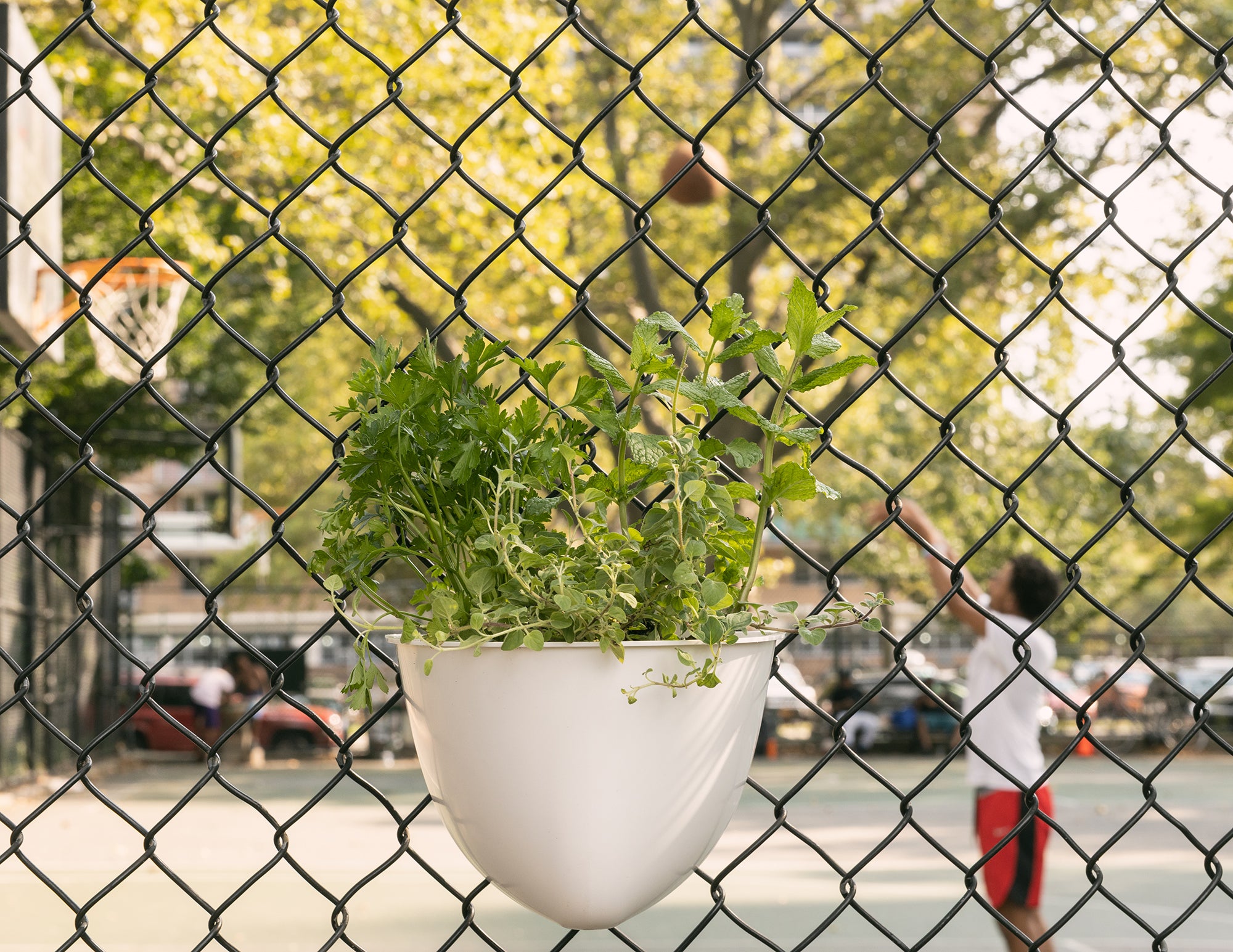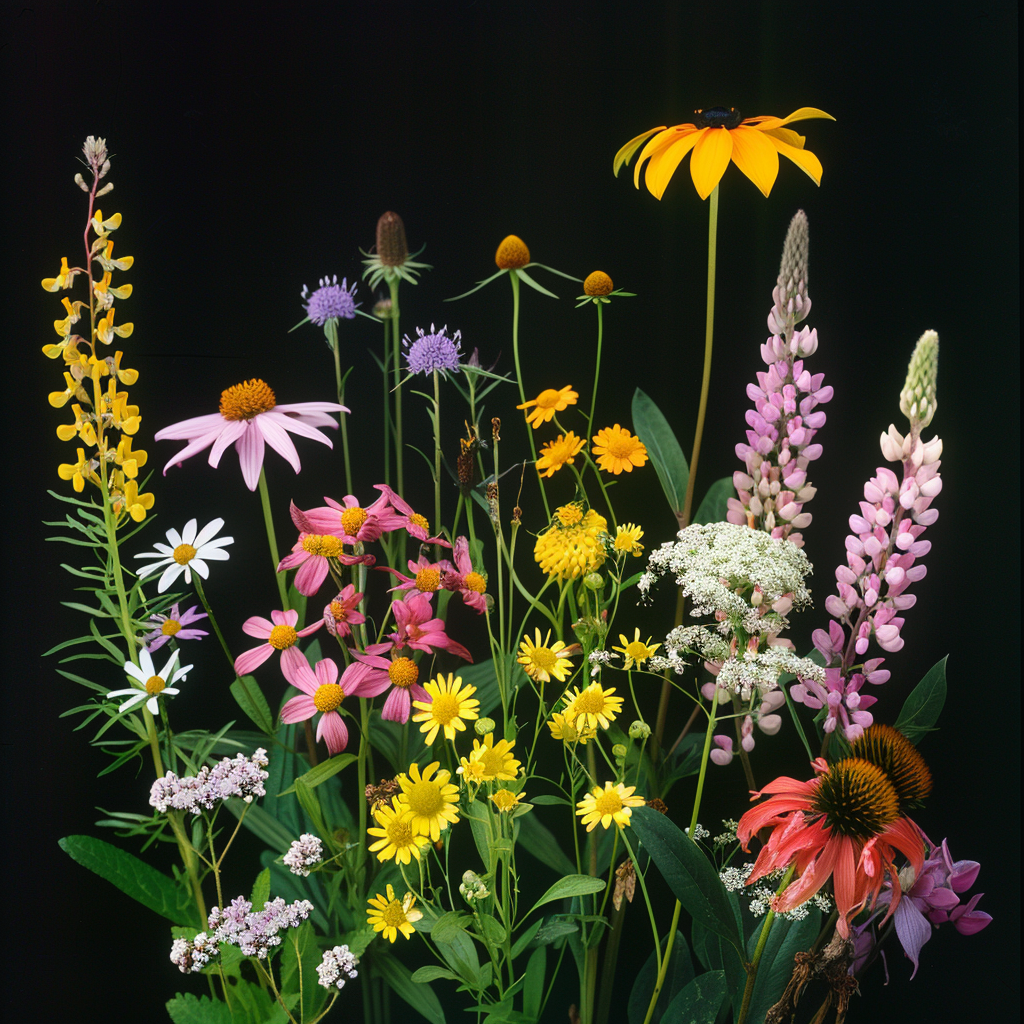Making the world a cleaner, greener place
Plant Seads founder Bryan Meador found himself living in New York City desperately seeking a connection to nature. Upon leaving the city for greener pastures Upstate, he was on a walk and passed a site covered in chain link fences with single-use plastics littering the ground. This led to an idea: he could shapeshift plastic waste into beautiful and beneficial vertical gardens.
Unable to find anything similar online that was making cities more sustainable, climate resilient and optimized for human living, Meador began developing his own solution, leading to the creation of Plant Seads.
Plant Seads was officially founded in 2020, inspired by nature’s ability to thrive and find a way to grow even in the most limiting places. With so many underused spaces, we aim to create fruitful and productive sanctuaries in those lost areas. Together, we can reimagine the environments we live in.
“I’m a firm believer that we have to create the future we want - so rather than wait for a wave of city-scale, eco-friendly environmental design to happen, I’m designing products from sustainable materials that enable people to start transforming our built environment right now.”
-Bryan Meador, Plant Seads Founder
Mission
Everything you need to know is right in our name
Seads is an acronym that stands for Sustainable Ecology, Adaptive Design.
Our first product offering is a versatile, vertical gardening planter that can hang virtually anywhere and is made from recycled plastic. Sead Pods empower people to grow their own gardens in wherever they want, with emphasis on previously unused spaces.
Vertical gardens have many environmental impact benefits, including:
— Cleaning the air of carbon dioxide and releasing oxygen
— Absorbing excess rainwater, keeping our rivers and streams healthy
— Minimizing urban heating effects during the summer and insulating buildings during the winter
— Enabling micro-farming in urban centers, reducing food insecurity and eliminating food miles
— Dampening noise pollution in urban areas
— Creating more green space in cities and small living spaces
By reimagining existing architectural elements like chain link fencing into gardens, we’re able to make progress on a few important environmental fronts all at once, all while cleaning our environment of single-use plastic that would otherwise pollute our communities.
Development
Bringing Sead Pods to life
Plant Seads is a brand with a mission – to create long-term sustainable solutions for life in an environment that’s changing more quickly than it ever has.
Using 3D printing and rapid prototype development, the Sead Pod was designed, manufactured and released in less than 6 months.
After lots of feedback and conversations with botanists, gardeners and our customers, we improved on our original Sead Pod design and we’re excited to offer it for sale now.
This new Sead Pod design can be mounted on any other vertical space and 5 quarts of soil, ensuring a wide variety of plants will be able to grow comfortably. We also made sure that each Sead Pod was rugged enough to withstand use for many years to come.
By using recycled plastic to grow plants that help to clean the air and create more biomass, we can use our waste to our advantage rather than creating more problems later on by dumping it in our oceans and landfills.
We’re inspired to take up this fight for a sustainable future by young people like Greta Thunberg, who said, 'I want you to act as if the house is on fire because it is.'
Vision
Growing for a greater tomorrow
Plant Seads enables people to start their own vertical garden, grow plants and trees from seed, and help cool and clean the air we breathe by introducing more plants into our polluted urban spaces. The project was developed, designed, and manufactured in the USA, keeping our carbon footprint small by eliminating the need for international shipping or manufacturing supply chains.
Just like the plants we’re inspired by, we want to start small. This approach allows us to perfect our design and make sure that the product is viable before we’re too far along. With that being said, we have some pretty big ideas for the future of this project, and we’d love to see them come to fruition.
As we continue to Plant Sead, we plan for our project to feature larger planters, raised beds made from recycled plastic, and other products for urban and vertical farmers.
The Botanical BulletinGet inspired with gardening tips, planting tricks, creative uses and more!
-

Inexpensive Ways to Cover a Chain Link Fence: Transform Your Space on a Budget
A chain link fence is a practical solution for many properties, but its industrial look can often detract from the beauty of your yard. Fortunately, you don't have to break the bank to hide it. There are numerous inexpensive ways to cover a chain link fence, transforming it into a more appealing feature. In this blog post, we’ll explore budget-friendly options and highlight how Sead planters can be an affordable and stylish solution. -

5 Creative Ways to Make Your Fence Look Nicer
A fence is more than just a boundary; it's an extension of your home and a canvas waiting to be transformed. Whether you have a small urban garden or a spacious backyard, enhancing your fence can significantly boost your outdoor space's aesthetic appeal. Here are five creative ways to make your fence look nicer, including the ultimate solution: Plant Seads vertical garden planters. -

Growing Urban Wildflowers: Supporting Pollinators in Vertical Gardens
In the concrete jungle of urban environments, the presence of green spaces, especially those buzzing with life, is a refreshing sight. One of the most effective ways to introduce vibrant life into cityscapes is by growing wildflowers. These nature's gems are not just aesthetically pleasing; they play a crucial role in sustaining pollinators.
Join the Plant Seads newsletter!
Stay in the loop with the latest in gardening trends, new Plant Seads product announcements, tips and more.







